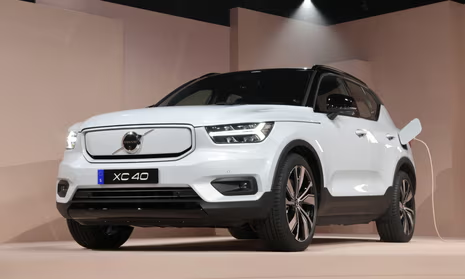Volvo Motors has given up on its lofty goal of selling solely electric vehicles by 2030 due to a decline in the market for battery-powered cars worldwide.
The Swedish automaker owned by Geely was the first conventional automaker to commit to going entirely electric, and it continues to be the most optimistic about the move even though competitors Ford and General Motors have also backed off on their EV goals. Volvo’s CEO, Jim Rowan, attributed the company’s amended objective on Wednesday to shifting market dynamics and consumer concerns around the absence of infrastructure for charging.
As he demonstrated Volvo’s latest totally electric sport utility vehicle, Rowan declared, “We will be ready to go fully electric this decade.”
However, he noted that “markets and customers are moving at different speeds,” meaning that the “complex transition” will probably take a few more years.

Volvo EV Mission by 2030
Volvo Cars stated in the statement that by 2030, it now planned for between 90% and 100% of cars sold to be plug-in hybrid or completely electric vehicles, with up to 10% of cars being so-called mild hybrids, which merely use electricity to augment a combustion engine.
In a separate statement, Volvo Cars announced that it would redesign its hybrid XC90 SUV, with the first customers receiving the vehicle by the end of the year, and that plug-in hybrids would be a crucial component of its future profit development.
Volvo Cars, which offers a combination of electric and hybrid vehicles, has up until now resolutely stuck to its goals of selling solely electric vehicles by 2030, even as its competitors started to scale back their aspirations. Among Volvo’s most notable all-electric vehicles are the SUVs EX90 and EX30.
An industry-wide strategy change has been brought about by the growing demand for hybrid automobiles, which had previously been intended to gradually replace hybrids with fully electric vehicles. Volvo Cars currently projects that between 50% and 60% of sales volumes will come from electrified vehicles by 2025, including both hybrids and fully electric vehicles. Prior to this, the goal for 2025 was to have at least 50% completely electric vehicles and the remainder hybrids.
Volvo Cars reported that as of the second quarter of 2024, the percentage of fully electric vehicles in its lineup was 26%, the highest percentage among its premium competitors. It stated that 48% of the share was electrified, with EVs and plug-in hybrids being included.
Volvo Cars outlined the obstacles to its electrification goals, citing a slower-than-anticipated rollout of charging infrastructure, the removal of government subsidies in some regions, and increased uncertainty brought on by recent levies on EVs in a number of locations.


